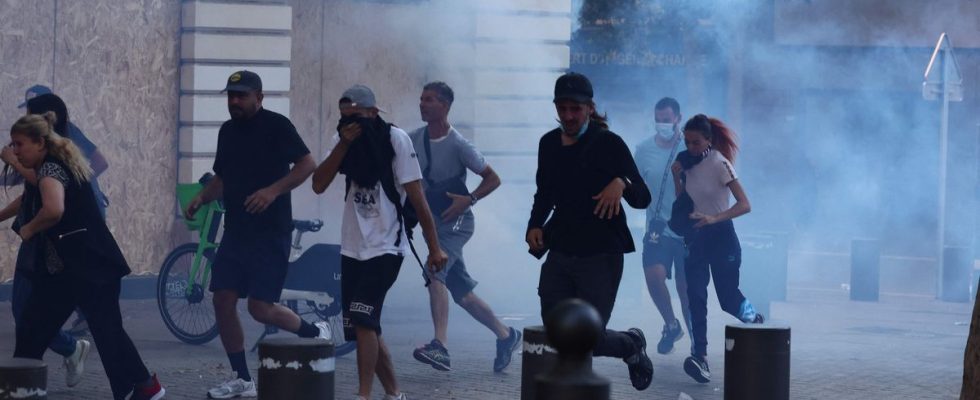For the past few days, the parents of children from working-class neighborhoods have been directly targeted. And this, because of the presence of minors among the rioters in the urban violence following the death of Nahel in Nanterre. The first summons came from Emmanuel Macron on Friday. “A third of those arrested last night are young people, sometimes very young. I call on parents to take responsibility, ”tweeted the head of state.
On Saturday, the Minister of Justice, Eric Dupond-Moretti followed suit, declaring that it was necessary to “repeat parents that they hold their kids”. This Monday, the prefect of Hérault, Yves Moutouh gave a layer. “If indeed, in the first 12-13 years, these children are raised like weeds, it should not be surprising that at 12-13 years old we see them stone police vehicles or loot shops”, said he declared. Before advising parents to use the strong method to stem urban violence, questioning the law prohibiting spanking: “The method is two slaps and in bed! ” The Minister of the Interior, Gérald Darmanin, was not left out, insisting on Monday on “the responsibility of parents” in the supervision of these young people, “because it is not up to the national police or to the gendarmerie or the mayor or even the State to solve the problem when a 12-year-old child sets fire to a school. »
The feeling of being disrespected
Short sentences that put end to end, ended up sounding like a lesson in education, badly felt by parents in sensitive neighborhoods. The latter had the impression of being put in the same bag, as evidenced by Nanou Tir, the president of the association Women of Bassens, deprived city of the northern districts of Marseille: “We took it badly. What does it mean ? That we don’t know how to educate our children? No parent told their child to go smash or steal. And in Marseille, with all the deaths linked to the settling of accounts, we make sure that our children do not go out, because we are afraid for them. »
An observation shared by the sociologist, Fabien Truong, professor at the University of Paris-8: “The vast majority of young people in working-class neighborhoods are held by their parents. They do not go out at night because their parents forbid them. The latter generally occupy jobs at the bottom of the social ladder. They rely on school, want their children to do better than them and are very present at their side. »
Heavy family contexts
Of the 3,200 people arrested by the police and the gendarmerie, between Tuesday and Sunday, during the five nights of riots, 60% were not known to the police, Interior Minister Gérald Darmanin said on Monday. And the average age of those arrested is “17 years old, sometimes with children aged 12-13,” said the minister. For Nanou Tir, these rioters have a particular profile: “They represent a very small minority. These are probably young people without a real family behind them, totally on their own, who get involved in group phenomena. »
Fabien Truong also explains that these young rioters are undoubtedly evolving in a very difficult social context: “These are socially broken kids, because they live in very precarious families, sometimes with only one parent, who is not always able to to assume their role. The sociologist also points out that many parents living in sensitive neighborhoods work at night. “They are maintenance workers, garbage collectors, logistics employees, drivers, delivery people, hotel and restaurant workers… They are not resigning parents, but they are not always there to control the actions of their parents. children,” he says.
“We need regular monitoring of our youngsters”
It is therefore difficult to hold on to his parents, who are already struggling to get out of it, a moralizing speech or to agitate in front of them the threat of sanctions, according to Fabien Truong. “Reinforcing the presence of social workers, teachers or educators likely to help them would be more effective, as well as increasing the budgets of the associations that operate in these neighborhoods”, he underlines. For her part, Nanou Tir believes that human resources should be reinforced in college, because it is at this school level that students are most at risk of dropping out. “We need regular monitoring of our young people, so that they are accompanied at every stage of their schooling, that we help them find their way. »
Moreover, the fact that parents feel stigmatized in this way can also give them the feeling of being hit with a triple penalty, according to Nanou Tir: “Not only will their children have problems with the law, but they will also pay for fix their mistakes and are accused of being bad educators. We must not put everything on their backs, ”she believes.

